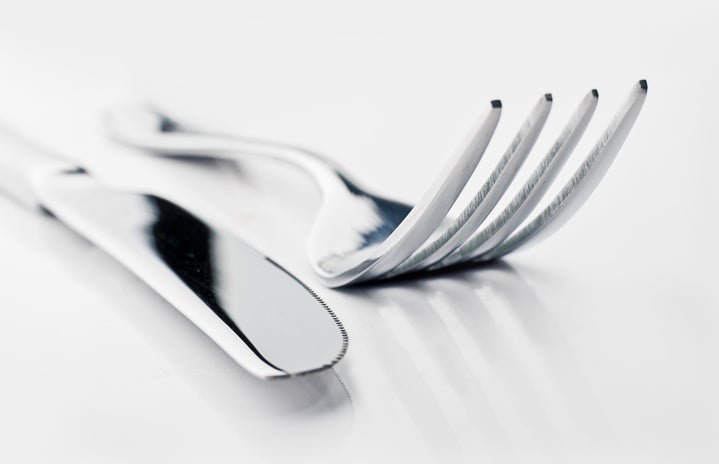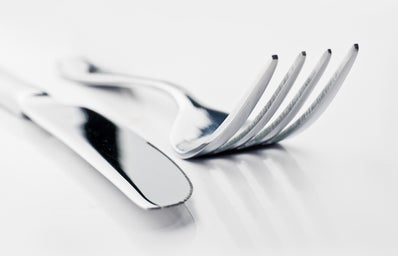(Note: Feminine in this article refers to stereotypical femininity. There are, of course, an infinite amount of ways to be feminine, and that is non-definable. This refers to the stereotype.)
“I’m not like other girls.”
This phrase rang through my head for most of my childhood. I didn’t like pink. I didn’t play with dolls. Girl who wore makeup were “fake.” If the guys were lifting something, I would too; all to prove that I wasn’t like other girls.
When I was in sixth grade, I dressed up like a princess. But not any princess. I dressed as one I had thought up, a fighter princess who hated being a princess. She carried a sword and bow and arrow. She was a badass, and she wasn’t like other girls. “Not like other girls” was my motto because as a smart girl, I had been told I wasn’t like other girls. I was told that I was better. Everywhere I looked, explicitly feminine girls were considered silly, or less than. A girl who liked makeup and clothing was shallow, and a girl who wore nail polish every day was high maintenance. A girl who cried was emotional, a baby. I didn’t want to be any of those things. I wanted to be taken seriously. So I listened to the world around me and sneered at girls in my class wearing makeup.
I grew out of it. I realized the toxicity of it all, of bringing woman down because they didn’t follow stereotypical male values. I started wearing makeup, because I liked it, still nervous people would notice my subtle moves towards femininity. I wore dresses, hoping no one would comment. Some people did, but over time I grew more confident. I mastered my eyeliner, dress and converse look, which I rocked a whole lot during high school. I found my balance of feminine and masculine, and I learned to be kind to all women, no matter how they chose to present themselves.
But feminine values still plague me. I still am a bit self-conscious when I wear a red lip or a tight piece of clothing. The biggest worry though, comes from my want for a family.
With feminism, I was taught I could be whoever I wanted. I don’t have to be a wife, I am no one’s subservient! (But oh, how I want to be married one day.) Kids? Kids are a choice, and I’m a strong independent women who doesn’t need to have kids to have value! (But maybe I want a big family, maybe I love kids.) And cook for my family? DON’T be so antiquated! I was going to be a working women, not my family’s chef! (But I love to cook, especially for others.)
Was a woman who wants to get married and have a family, and woman who can (and likes to!) cook holding back feminism?
So I kept my little “misogynist” dream to myself. I told people I don’t need a man, I don’t talk about how much I love kids and how I want a small army of them. No one was to know that I like to cook. I wouldn’t let people know I am, in some ways, stereotypical.
But I love kids. I couldn’t really hide that, hide my face of pure joy every time I saw a baby or a child. I admitted it to my friends my little secret—I wanted a family.
Once I had admitted a fairly normal want, I realized—there’s nothing wrong with wanting a family. I’m no less of a feminist. If I wanted a small army of kids, then that was something I was allowed to want. Family and feminist could go together.
But I don’t like talking about boys, still, and I’m 18—because that’s admitting that I want someone, and I’m afraid I’ll be seen like “that girl.” But, so what? Maybe I am “that girl.” “That girl” wants a family, and a husband, and there’s nothing wrong with that. Feminism is about choice, and whatever choice I make I make it for myself. But even though I know that, I’m afraid of being judged.
I work on it. I’m honest with the fact that I love the idea of a family, that I am interested in being in a relationship and boys in general. But it’s a process of unlearning what society has taught me my whole life—that these feminine values are lesser.
Don’t get me wrong, I don’t think this is a problem with feminism. I think this is a problem with the way feminism is presented to young girls—that we should break the glass ceiling by being as far from “feminine” as possible.
There’s nothing wrong with makeup or certain kinds of clothing. There’s nothing wrong with high heels and curling your hair. And if you want a family, and to be married, there’s nothing wrong with that either. I’m no less of a feminist just because I’m more feminine.
Image Credit: Gabrielle Ivanier

